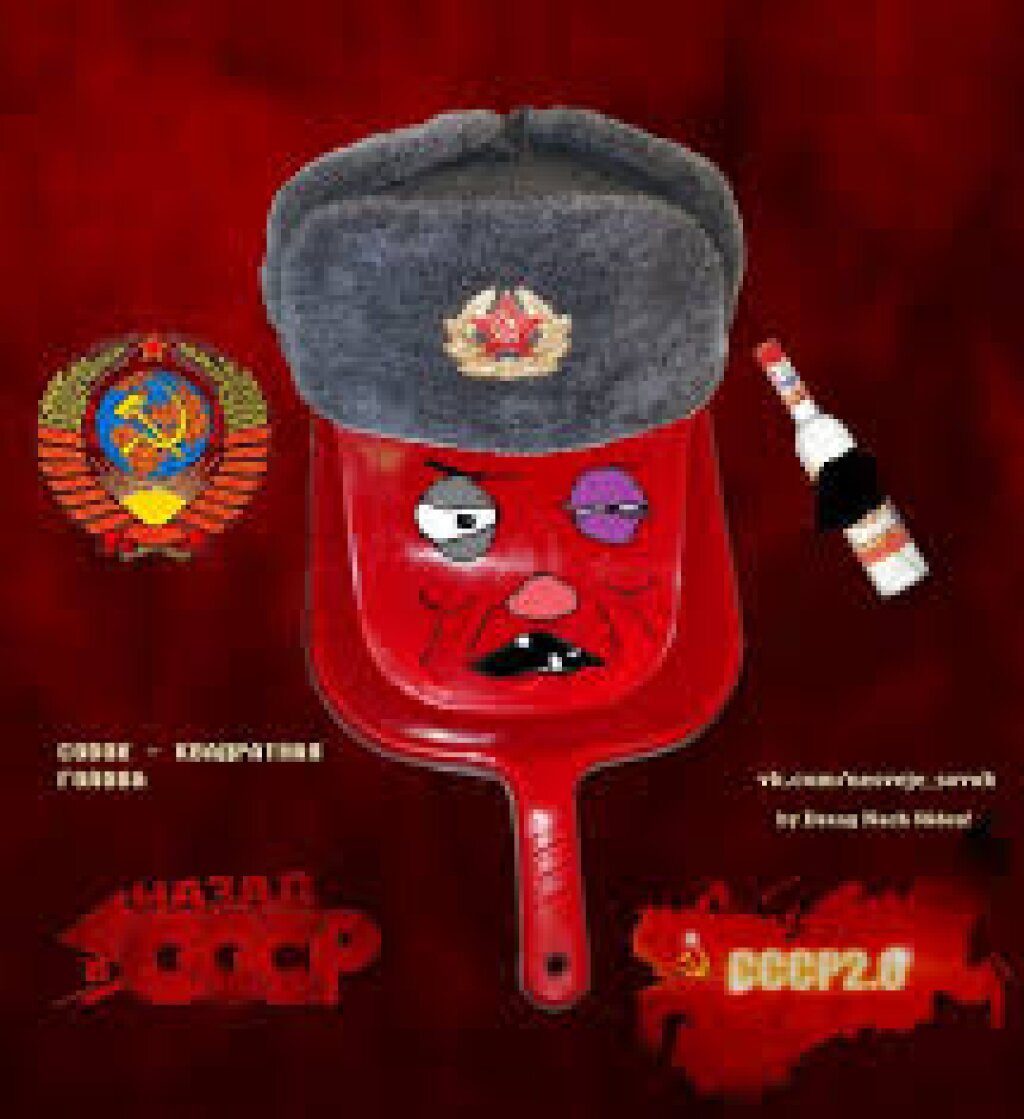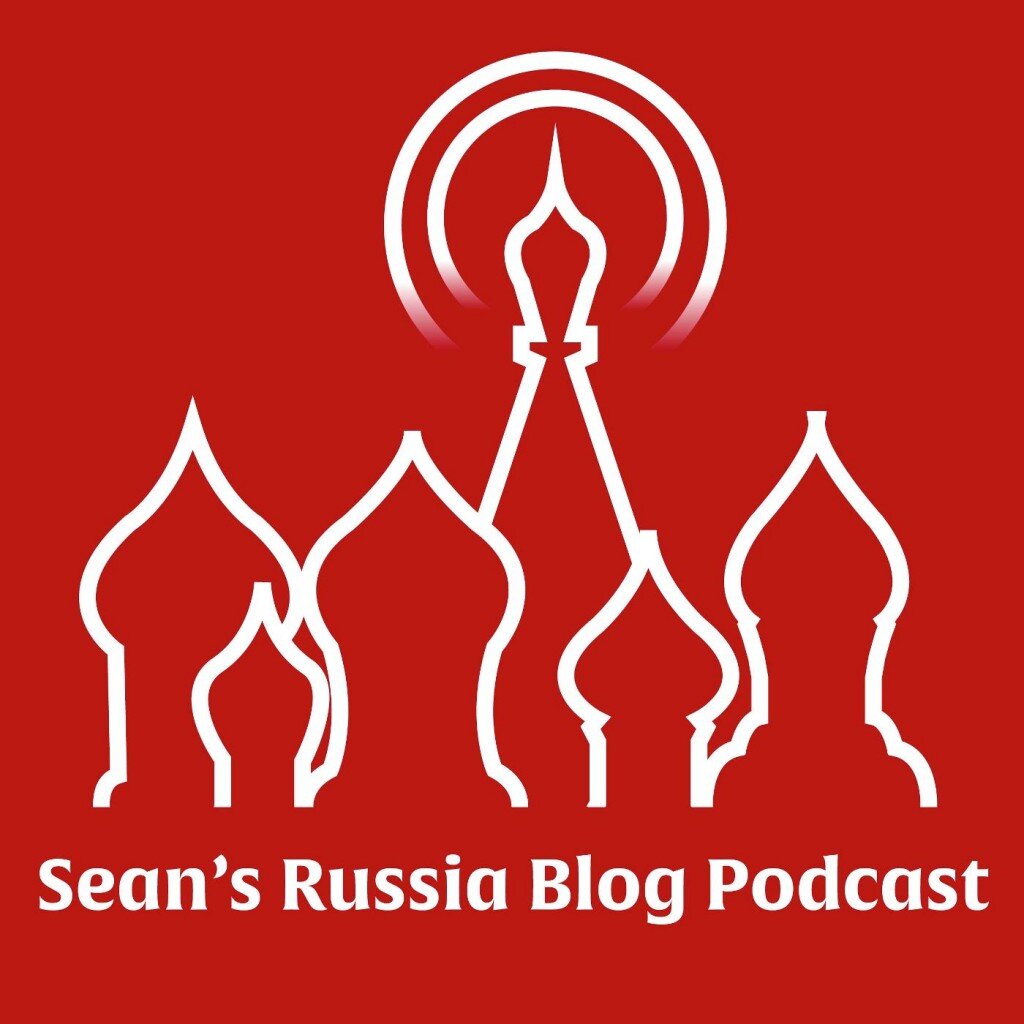This is the twenty-first entry of Russia’s Alien Nations: The Secret Identities of Post-Socialism, an ongoing feature on All the Russias, as well as the eighth entry of Chapter 1. It can also be found at russiasaliennations.org. You can also find all the previous entries here.
As Soviet identities moved from glory to stigma, the terms involved faced a serious memetic obstacle. On the positive side, the nomenclature is simple, immediately legible, and, most important, linguistically productive: the variations on “new man” simply follow the phraseological model established by the “new man” himself: “new man,” “new Soviet man,” “Soviet man.” “Homo Sovieticus” was a jarring linguistic intervention. Not only was it Latin (a language that has shallow roots in Russian culture) and phonetically unappealing; it was an import, and not a particularly sexy import at that. “Homosos” was definitely a step forward, but the source of its attraction was also an obstacle to its widespread adoption: it manages to be ideologically anti-Soviet and an implied dirty joke at the same time.
By comparison, the word “sovok” had every advantage. First, it involved the repurposing of an already existing word (“sovok” means “dustpan”). Second, it phonetically resembles the object of derision (the “Soviet”). Third, and most important, it circulated the same way as the best critical or anti-Soviet cultural phenomena did during Soviet times: as folklore. Homosos was the product of a single author, whose tendentious work could not have been all that widely available as samizdat, and in any case, has neither the moral urgency of Solzhenitsyn nor the inspired whimsy of Voinovich (falling uncomfortably, and unproductively, somewhere between the two). “Sovok,” on the other hand, belonged to everyone who used it.
This does not mean that no one has claimed authorship. On the contrary, there are at least four people who are often credited with inventing the term. The Soviet singer-songwriter Alexander Gradsky (b. 1949) recalls that, at some point in the mid-1970s, he and his friends went looking for a place to drink (his mother and Yuri Shakhnazarov’s grandmother wouldn’t let them drink at home). So they all sat down in a sandbox, but didn’t have any cups or glasses. Rather than drink straight from the bottle, they gathered up the sandbox toys that someone had left behind and used them instead: a toy shaped like a bunch of grapes, a little house, a pear….Gradsky ended up using a toy dustpan with the words “Dustpan. 23 kopecks” on it, and said, “We’re drinking like dustpans.” (Gradsky, “Muzyka”) [1]. Gradsky admits that he cannot prove this story, and that, in any case, he is not happy with how the word has developed: “It was supposed to be an affectionate nickname. Like an explanation of the hopelessness and senseless of struggling, an attempt, as it were, to invite people to raise their hands and shrug: ‘What are you gonna do? We’re all like that.’ Then some idiots made it an insult. But that’s not what it was.”
The critics Pyotr Vail’ and Alexander Genis are frequently credited with coining the term, something that Genis categorically denies. Instead, he claims that he first heard the term on Brighton Beach, as an insulting term describing visitors from the USSR who bought everything they could find, “like vacuum cleaners” (пылесосы), which somehow gets shortened to “sovki,” This explanation makes little phonological sense (how do you get from “pylesos” to “sovok”, which only have two letters and no syllables in common?), but at least we can cross Vail’ and Genis off the list of potential authors.
The third potential author (or fourth, if Vail’ and Genis count for two) has the weight of philological authority behind him: the philosopher Mikhail Epstein. After all, inventing words is part of his stock in trade,and he (like Vail and Genis) has written a great deal about Soviet culture, which would suggest that, unlike in Gradsky’s case, the word “sovok” would have arisen as part of a larger philosophical or analytical framework. And, indeed, this is what Epstein himself has claimed in numerous interviews and essays. The clearest elaboration of his case can be found in a 2008 essay, “Sovki and Others. On the History of the word ’sovok'" (). He rejects the connection between “sovok” and its literal meaning (“dustpan”) at the heart of Gradsky’s explanation: “If we replace it with “shovel” (“lopata” or “lopatka”), also used in children’s games, we see that calling people who are Soviet through-and-through “shovels” would be strange and inappropriate.” In other words, the term is based entirely on phonetic resemblance.
According to Epstein, he came up with the term in 1984, when he began work on his book, The Great Sov’, “Sov’” being a made-up term for a nation, analogus to Kievan “Rus’”. “Sov’”, of course, was meant to be a stand-in for the Soviet Union, in this case inhabited by “sovichi,” who were divided into various castes, including the passive, ordinary working people called “sovki” (the plural of “sovok”). The book was published 1988, and in 1989, Epstein read parts of it aloud over the BBC’s Russian service, which he assumes is how the word spread.
All the same, Epstein is not happy with how the word ended up being used; he intended it to be “lyrically ironic,” and even mildly affectionate. The mockery and scorn that he feels usually accompanies the word, quoting Lev Anninsky’s opinion on the subject: “I’ve come to hate this term, and have said so publicly and in print, and would never use the word on my own.”
With all due respect to Epstein, it seems more likely that he facilitated the word’s spread rather than definitively coining it; given the number of claims of the word’s earlier use, we are probably faced with a word that arose independently more than once. Epstein’s own explanation of his authorship would support the likelihood that the word “sovok” could have been invented more than once, since its memetic success appears to be predicated on how much it sounds like the word “Soviet.” The fact that it also means “dustpan” may well be a happy accident.
But who, or what, is a sovok?
Note
[1] The most comprehensive compilation of “sovok” origin stories can be found in a footnote to Konstantin Bogdanov’s Vox Populi, which is one of the sources used for the present blog entry.



